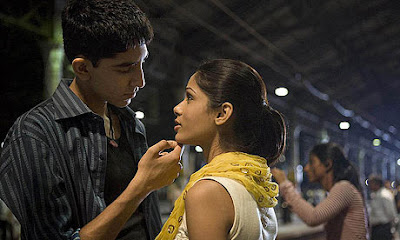Earlier this week before our interruption to yell at people about the Syrian war, I ended on a question about the dangers democracy may face in the post-colonial world.
“So in India – as well as former colonies across Asia and Africa – the state and its administration was well-established. Then civic institutions plopped on top.
"If the civic institutions of democratic representation and national unity are an afterthought to your administrative institutions, can you still be a democracy? . . . To Be Continued”
A lot of the states in the world that used to be imperialist colonies inherited institutions that were generally geared toward two activities. One was delivering services. The other was dividing up the population into categories and classes based on what services they’d receive.
Now in the time when these institutions were run by a bunch of racist Europeans, the population was usually divided to stir up resentment and hatreds, prevent them from forming social links strong enough to overthrow the empire.
 |
| Movies are sometimes the only ways most Westerners learn anything about another culture, especially Asian ones. You don't exactly get a lot of detail in between the Bollywood tropes. |
So colonial states were built to discourage and break apart any civic nationalist solidarity before it could even form. That’s good management from an imperialist’s sense. That way, the population will be less likely to organize themselves to kick you out of their country.
Once all the colonial empires did get kicked out of those countries, there was a bit of a dilemma. Here we had a state institution all ready to run, but it was built to segment the population into separate groups and treat them totally differently.
Remove the divide-and-conquer motivation from the state institutions,* but keep an administration that minutely identifies different classes in a population by need and situation. What you have left after that is a quality welfare state.
* And not all of them did, to their horrifying detriment usually.
And this kind of welfare state ends up with a curious form of politics attached to it. The politics of community lobbying.
Think back to the example of Kolkata’s Railway Gate shantytown in Partha Chatterjee’s The Politics of the Governed. They're able to maintain their existence as a thriving community of poor people on the side of the tracks because they formed a leadership group.
The People’s Welfare Association organizes to lobby for government services and coordinate how they’re distributed. And they rarely meet with elected officials. They meet with the administration officials and workers who actually get work done.
The shantytown and its concerns are on such a small scale compared to the entire city of Kolkata that municipal representatives don’t have the remit to deal with it. Let alone elected officials in any higher level of the Indian government. So they deal directly with government administrative workers.
 |
| Men hoping to join India's civil service line up expectantly. According to Chatterjee, they're important organs of Indian democracy. I think he's on to something really interesting here. |
Civil servants. They have their welfare budgets and can largely direct it as their offices see fit. So if you’re a small-scale self-organized group like the Railway Gate shantytown, you can get the most effective results from your lobbying efforts. The officials give out the money and the services.
This is the kind of democracy that exists in a lot of post-colonial countries, where people are still beholden to multiple identities and solidarities, and no one national identity need take precedence. This is the democracy of community organization itself.
It preserves the desires, identities, and lifestyles of each peculiar group. And it creates solidarity within all these groups because of the social organization needed to thrive. The flow of money and goods from the general population to different communities within it helps build a social solidarity across the country that has nothing to do with the drive to conformity that comes with nationalism.
This is the ideal of what the lobbying democracy of the administrative welfare state can do. It can revive civic organization on a local, micro level to demand entitlements – the satisfaction of needs.
Ideals are rarely achieved, of course. One obvious way this kind of democracy can corrupt itself is with literal corruption.
The formerly democratic lobbying organization ossifies into a static office. The loyal leader of his people becomes a stodgy lifetime-appointed official himself. Lobbying for public resources for your community becomes bribery for government lucre.
But the potential is incredible. A democratic culture of organization from the micro-level to lobby large and larger scale state institutions – there is nothing more democratic than the demand. The demand for a better life and the assistance to build one.
What happens when nationalism collides with this new kind of democracy? . . . To Be Continued
No comments:
Post a Comment